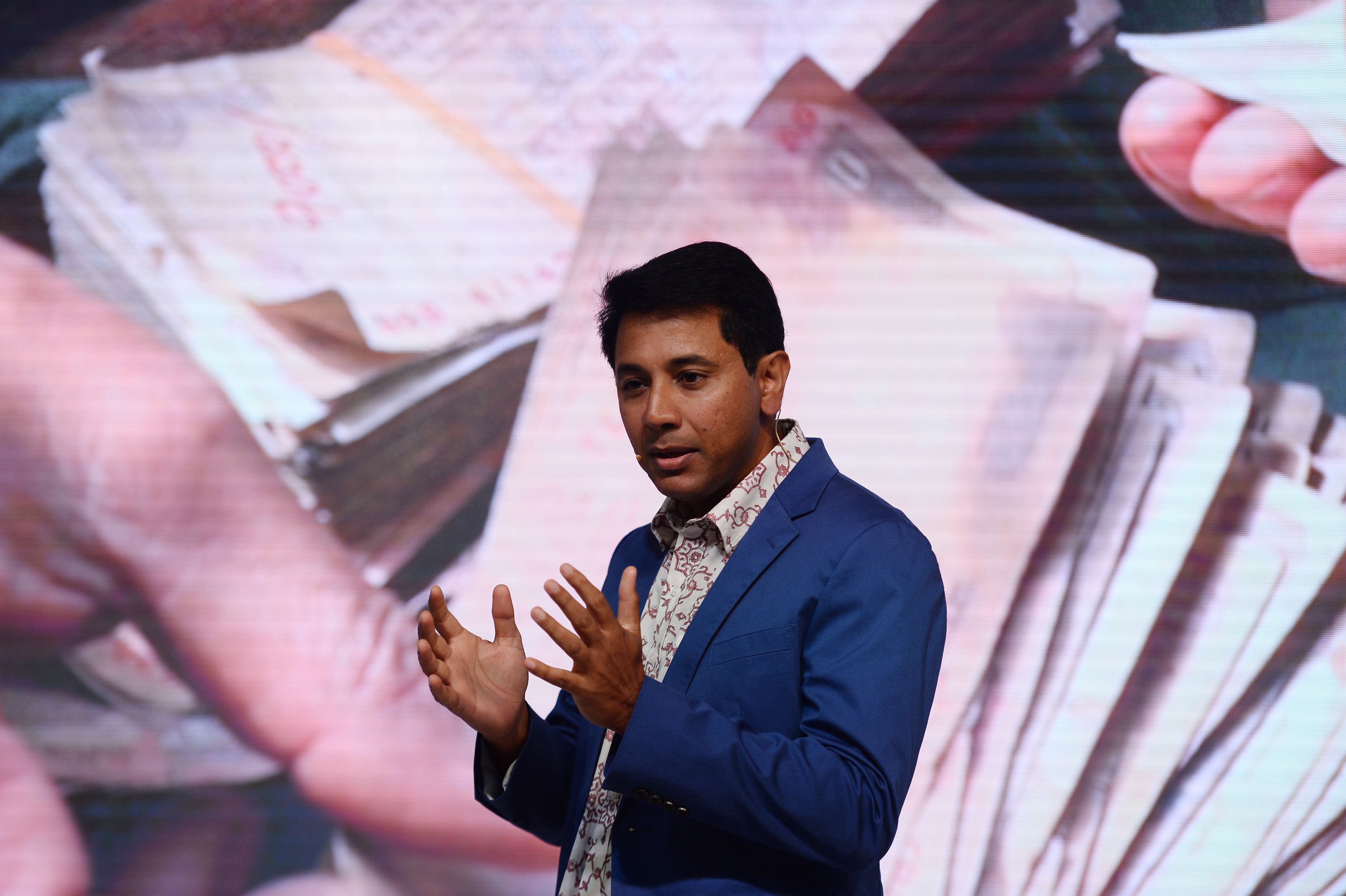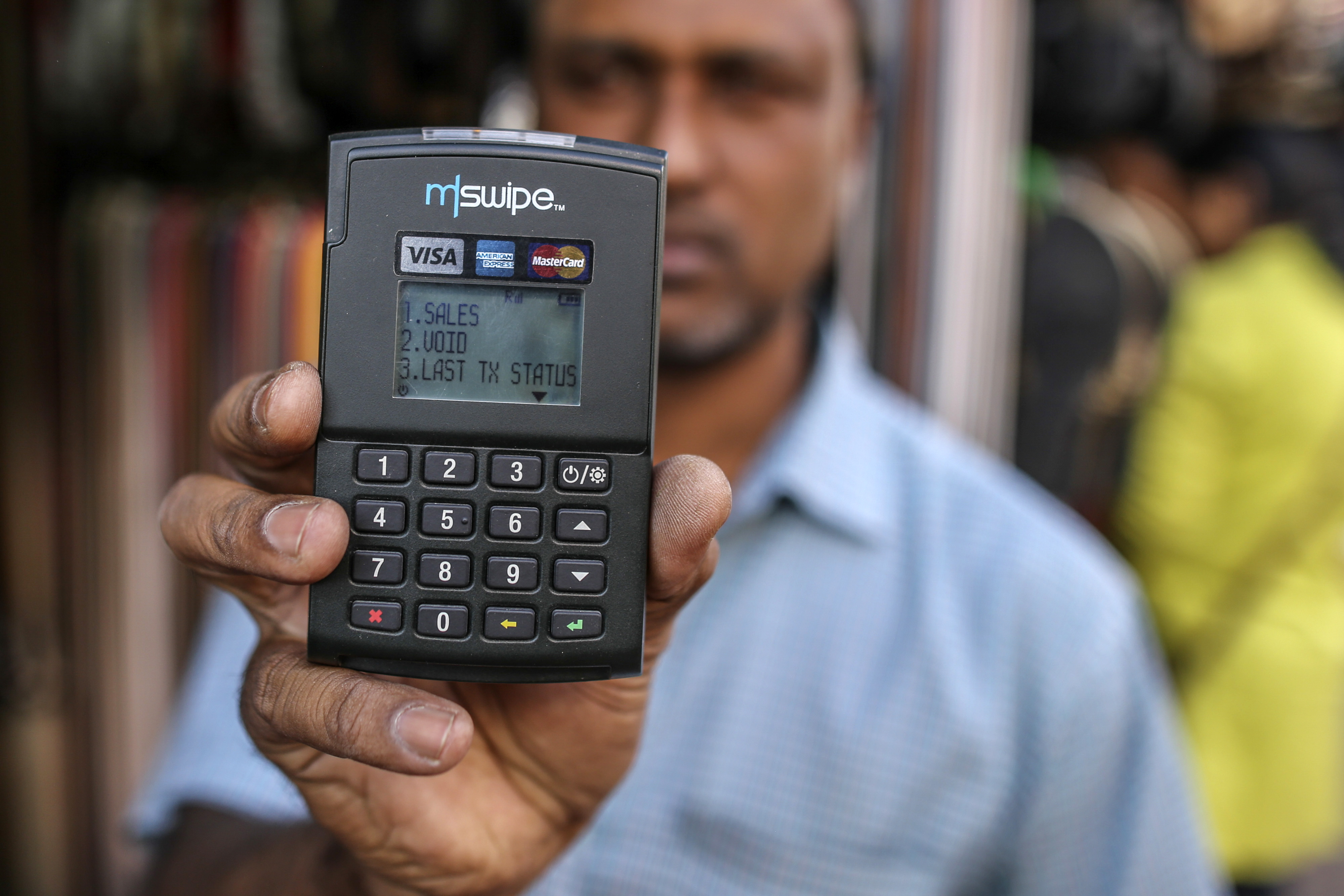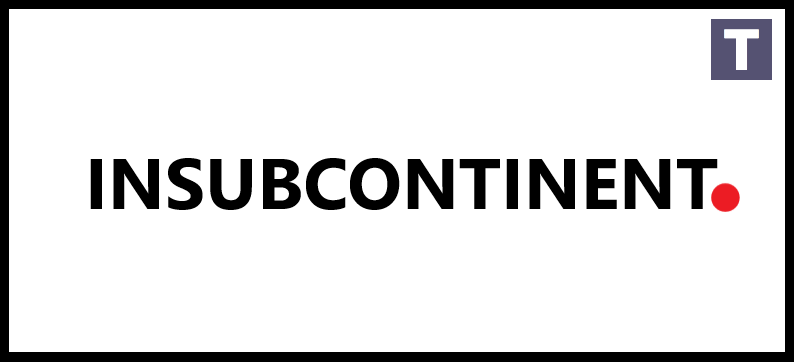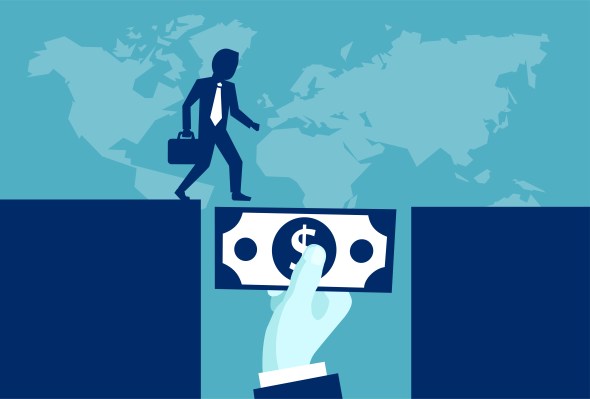Vijay Shekhar Sharma, founder and chief executive of Indiamost valuable startup, Paytm, posed an existential question in a recent press conference.
&What do you think of the commercial model for digital mobile payments. How do we make money?& Sharma asked Nandan Nilekani, one of the key architects of the Universal Payments Infrastructure that created a digital payments revolution in the country.
Itthe multi-billion-dollar question that scores of local startups and international giants have been scrambling to answer as many of them aggressively shift their focus to serving merchants and building lending products and other financial services .
New Delhiabrupt move to invalidate much of the paper bills in the cash-dominated nation in late 2016 sent hundreds of millions of people to cash machines for months to follow.
For a handful of startups such as Paytm and MobiKwik, this cash crunch meant netting tens of millions of new users in a span of a few months.
India then moved to work with a coalition of banks to develop the payments infrastructure that, unlike Paytm and MobiKwik earlier system, did not act as an intermediary &mobile wallet& to serve as an intermediary between users and their banks, but facilitated direct transaction between two users& bank accounts.
Silicon Valley companies quickly took notice. For years, Google and the likes have attempted to change the purchasing behavior of people in many Asian and African markets, where they have amassed hundreds of millions of users.
In Pakistan, for instance, most people still run errands to neighborhood stores when they want to top up credit to make phone calls and access the internet.
With China keeping its doors largely closed for foreign firms, India, where many American giants have already poured billions of dollars to find their next billion users, it was a no-brainer call.
&Unlike China, we have given equal opportunities to both small and large domestic and foreign companies,& said Dilip Asbe, chief executive of NPCI, the payments body behind UPI.
And thus began the race to participate in the grand Indian experiment. Investors have followed suit as well. Indian fintech startups raised $2.74 billion last year, compared to 3.66 billion that their counterparts in China secured, according to research firm CBInsights.
And that bet in a market with more than half a billion internet users has already started to pay off.
&If you look at UPI as a platform, we have never seen growth of this kind before,& Nikhil Kumar, who volunteered at a nonprofit organization to help develop the payments infrastructure, said in an interview.
In October, just three years after its inception, UPI had amassed 100 million users and processed over a billion transactions. It has sustained its growth since, clocking 1.25 billion transactions in March — despite one of the nationlargest banks going through a meltdown last month.
&It all comes down to the problem it is solving. If you look at the western markets, digital payments have largely been focused on a person sending money to a merchant. UPI does that, but it also enables peer-to-peer payments and across a wide-range of apps. Itinteroperable,& said Kumar, who is now working at a startup called Setuto develop APIs to help small businesses easily accept digital payments.

Vice-president of GoogleNext Billion Users Caesar Sengupta speaks during the launch of the Google &Tez& mobile app for digital payments in New Delhi on September 18, 2017 (Photo: Getty Images via AFP PHOTO / SAJJAD HUSSAIN)
The Google Pay app has amassed over 67 million monthly active users. And the company has found the UPI pipeline so fascinating that it has recommended similar infrastructure to be built in the U.S.
In August, the Federal Reserve proposed to develop a new inter-bank 24×7 real-time gross settlement servicethat would support faster payments in the country. In November, Google recommended (PDF) that the U.S. Federal Reserve implement a real-time payments platform such as UPI.
&After just three years, the annual run rate of transactions flowing through UPI is about 19% of IndiaGross Domestic Product, including 800 million monthly transactions valued at approximately $19 billion,& wrote Mark Isakowitz, Googlevice president of Government Affairs and Public Policy.
Paytm itself has amassed more than 150 million users who use it every year to make transactions. Overall, the platform has 300 million mobile wallet accounts and 55 million bank accounts, said Sharma.
Search for a business model
But despite on-boarding more than a hundred million users on their platform, payment firms are struggling to cut their losses — let alone turn a profit.
At an event in Bangalore late last year, Sajith Sivanandan, managing director and business head of Google Pay and Next Billion User Initiatives, said current local rules have forced Google Pay to operate in India without a clear business model.
Mobile payment firms never levied any fee to users as a strategy to expand their reach in the country. A recent directive from the government has now put an end to the cut they were receiving to facilitate UPI transactions between users and merchants.
GoogleSivanandan urged the local payment bodies to &find ways for payment players to make money& to ensure every stakeholder had incentives to operate.
Paytm, which has raised more than $3 billion to date, reported a loss of $549 million in the financial year ending in March 2019.
The firm, backed by SoftBank and Alibaba, has expanded to several new businesses in recent years, including Paytm Mall, an e-commerce venture, social commerce, financial services arm Paytm Money and a movies and ticketing category.
This year, Paytm has expanded to serve merchants, launching new gadgets such as a stand that displays QR check-out codes that comes with a calculator and a battery pack, a portable speaker that provides voice confirmations of transactions and a point-of-sale machine with built-in scanner and printer.
In an interview with TechCrunch, Sharma said these devices are already garnering impressive demand from merchants. The company is offering these gadgets to them as part of a subscription service that helps it establish a steady flow of revenue.
The firmMoney arm, which offers lending, insurance and investing services, has amassed over 3 million users. The head of Paytm Money, Pravin Jadhav, resigned from the company this week, a person familiar with the matter said. A Paytm spokeswoman declined to comment. (Indian news outlet Entrackr first reported the development.)
Flipkart PhonePe, another major player in Indiapayments market, today serves more than 175 million users, and over 8 million merchants. Its app serves as a platform for other businesses to reach users, explained Rahul Chari, co-founder and CTO of the firm, in an interview with TechCrunch. The company is currently not taking a cut for the real estate on its app, he added.
But these startups& expansion into new categories means that they now have to face off even more rivals, and spend more money to gain a foothold. In the social commerce category, for instance, Paytm is competing with Naspers-backed Meeshoand a handful of new entrants; and heavily-backed OkCredit and KhataBook today lead the bookkeeping market.
BharatPe, which raised $75 million two months ago, is digitizing mom and pop stores and granting them working capital. And PineLabs, which has already become a unicorn, and MSwipe have flooded the market with their point-of-sale machines.

A vendor holds an Mswipe terminal, operated by M-Swipe Technologies Pvt Ltd., in an arranged photograph at a roadside stall in Bengaluru, India, on Saturday, Feb. 4, 2017. (Photographer: Dhiraj Singh/Bloomberg via Getty Images)
&They have no choice. Payment is the gateway to businesses such as e-commerce and lending that you can monetize. In Paytmcase, their earlier bet was Paytm Mall,& said Jayanth Kolla, founder and chief analyst at research firm Convergence Catalyst.
But Paytm Mall has struggled to compete with giants Amazon India and Walmart Flipkart. Last year, Mall pivoted to offline-to-online and online-to-offline models, wherein orders placed by customers are serviced from local stores. The company also secured about $160 million from eBay last year.
An executive who previously worked at Paytm Mall said the venture has struggled to grow because its goal-post has constantly shifted over the years. It has recently started to focus on selling fastags, a system that allows vehicle owners to swiftly pay toll fees. At least two more executives at the firm are on their way out, a person familiar with the matter said.
Kolla said the current dynamics of Indiamobile payments market, where more than 100 firms are chasing the same set of audience, is reminiscent of the telecom market in the country from more than a decade ago.
&When there were just four to five players in the telecom market, the prospect of them becoming profitable was much higher. They were scaling like crazy. They grew with the lowest ARPU in the world (at about $2) and were still profitable.
&But the moment that number grew to more than a dozen overnight, and the new players started offering more affordable plans to subscribers, thatwhen profitability started to become elusive,& he said.
To top that off, the arrival of Reliance Jio, a telecom operator run by Indiarichest man, in 2016 in the country with the cheapest tariff plans in the world, upended the market once again, forcing several players to leave the market, or declare bankruptcies, or consolidate.
Indiamobile payments market is now heading to a similar path, said Kolla.
If there were not enough players fighting for a slice of Indiamobile payments market that Credit Suisse estimate could reach $1 trillion by 2023, WhatsApp, the most popular app in the country with more that 400 million users, is set to roll out its mobile payments service in the country in a couple of months.
At the aforementioned press conference, Nilekani advised Sharma and other players to focus on financial services such as lending.
Unfortunately, the coronavirus outbreak that promoted New Delhi to order a three-week lockdown last month is likely going to impact the ability of millions of people to use such services.
&India has more than 100 million microfinance accounts, serviced in cash every week by gig-economy workers, who hawk vegetables on street corners or embroider saris sold in malls, among other things. Three out of four workers make a living by working casually for others or at their family firms and farms. Prolonged shutdowns will impair their ability to repay loans of 2.1 trillion rupees ($28.5 billion), putting the worldlargest microfinance industry at risk,& wrote Bloomberg columnist Andy Mukherjee.






